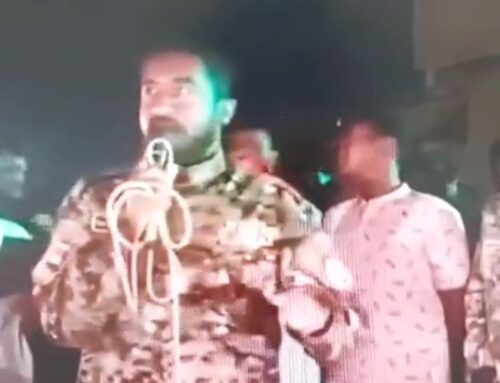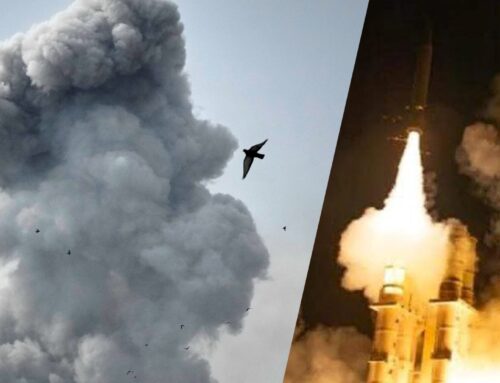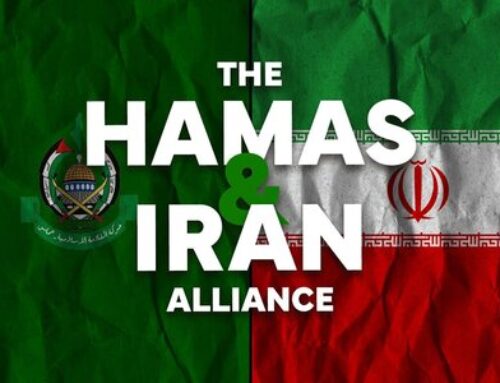‘Babies had their throats cut’: how Kfar Aza kibbutz massacre unfolded
Even the most hardened Israeli officers found it hard to take in what they were seeing in the devastation left by Hamas, Anshel Pfeffer reports
Tuesday, October 10, 2023
By Anshel Pfeffer, Kfar Aza
Reprinted from The Times [London]
All day, military chaplains and search teams tenderly wrapped tiny bodies, carrying them to waiting stretchers that bore them away from the nightmare of Kfar Aza.
The horrors that Israelis endured at the hands of Hamas in this kibbutz, a mile from the suburbs of Gaza City, defy belief. As they surged through Israeli defences, the Palestinian militants attacked Kfar Aza from four directions, starting with the “youngsters’ quarter” on the western side, closest to Gaza.
Little remained today of the homes in the kibbutz: only shards of coffee cups and blackened bedframes. And bodies.
Israeli soldiers have removed dozens of bodies from the ruins of Kfar Aza
Every few minutes soldiers broke the silence to announce that more dead people had been discovered. Some said that up to 40 babies’ corpses had been found among entire families who were shot dead as they slept. The children in particular appeared to have suffered gruesome deaths: there were claims that some had had their throats cut.
“I’ve served as a combat soldier and officer for 39 years,” Major General Itai Veruv said as he stood with red-rimmed eyes at the entrance to the kibbutz. “I’ve never seen anything that comes close to this. It’s not even something that our parents knew. This is something out of the world of our grandfathers back in Europe, from the pogroms and the Holocaust.”
As more bodies emerged, it seemed likely that Kfar Aza would turn out to be the scene of the biggest massacre of this war, the greatest loss of civilian life in a terrorist attack in Israeli history. It was part of Hamas’s assault on more than 15 communities, kibbutzim and towns on Saturday morning. An estimated 1,000 Israelis were killed and scores more, including women, elderly people and young children, were kidnapped.
In Kfar Aza officers were cautious not to give numbers of the dead on record, but privately they expect the worst. Yesterday more than 100 bodies were found in Kibbutz Be’eri, to the south. “This one is probably worse,” one officer said. “We are afraid we’ll find hundreds of bodies.”
Yoav Gallant, the Israeli defence minister, said: “Anyone who came to decapitate, to murder women and Holocaust survivors will be annihilated at the height of our strength and without compromise. What we witnessed in the towns was a massacre.”
The general, Veruv, said: “You see the babies, the mothers, the fathers in their bedrooms, in their protection rooms, and how the terrorist kills them. It’s not a war; it’s not a battlefield. It’s a massacre.”
He had arrived at Kfar Aza on Saturday to join the fighting. Now he said he had gathered the media to impress upon them the scale of the slaughter. “When I discovered what had happened here, I remembered how General Eisenhower, when the American army liberated concentration camps in Germany, immediately brought the media so the world would know.”
Asked about Israel’s planned response, he said: “We’re going towards something difficult and bitter.”
Younger officers and soldiers who had fought through the kibbutz, taking it back house by house, were not prepared to talk about their feelings on discovering the bodies. “We have a long war ahead of us now,” one officer said. “There will be time to come to terms with what we saw here after the war.”
Among those who have died here were Itai and Hadar Berdichevsky, who, as the gunfire broke out, managed to hide their ten-month-old twins in their “safe room” at home. Then Hamas fighters burst in and shot them dead. The babies remained alone for 14 hours before they were rescued by soldiers and taken to their grandmother.
Lieutenant Colonel Karmi Meir, commander of the reserve battalion of paratroopers that bore the brunt of the fighting for three days, emphasised that there were also stories of survival among the destruction and death.
“We succeeded in rescuing a big group of 50 parents and young children on the first night of the war,” he said. “And we managed to kill all the terrorists without any casualties to my battalion. We fulfilled our mission and emerged safely. That’s our duty. If only we could have arrived here earlier.”










Leave A Comment
You must be logged in to post a comment.